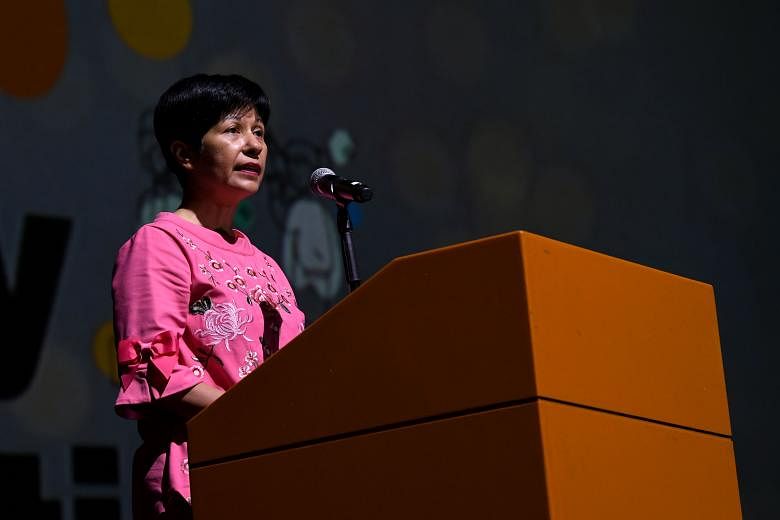SINGAPORE - More dynamism will be injected into bulk contracts so that the Government's use of technology remains relevant and up to date, Second Minister for Finance Indranee Rajah said in Parliament on Friday (Feb 28).
Suppliers can make adjustments, such as to prices and services, under a dynamic contract model, without waiting for their bulk contracts to expire. The technology used in the service or product can therefore get updated in a timely manner.
"We are introducing more dynamism in some of our bulk contracts to be responsive to market changes," said Ms Indranee, who was asked by Mr Liang Eng Hwa (Holland-Bukit Timah GRC) and Ms Foo Mee Har (West Coast GRC) how the Government is transforming public service processes during the Budget debate.
Suppliers can refresh their prices under current infocomm technology (ICT) bulk contracts, but new requirements and suppliers can be added throughout a multi-year contract with the change, she added during the debate over the Ministry of Finance's budget.
"This is especially pertinent in an environment of rapid technology changes," said Ms Indranee, who is also a Minister in the Prime Minister's Office and Second Minister for Education. "Agencies can have faster access to newer technology and capabilities."
Suppliers will also be able to offer new products and services to the Government, without waiting for the bulk contracts to expire, she added.
So far, the pilot use of dynamic contracts has been applied to two ICT bulk tenders, amounting to more than $700 million, with plans to scale up to three more bulk tenders this year.
Public officers will also be able to make small value purchases from e-commerce sites, without having to claim reimbursement, Ms Indranee said. This kicks in by the end of this year.
"Today, the public service spends more than $60 million annually on small value items such as pantry supplies, stationery and small electrical appliances," she added.
A fully automated e-commerce model will lighten the Government's processing workload, she said, pointing out that audit controls and monitoring done in the background will save public officers more than 100,000 man-days a year.
New procurement approaches are also being tested in regulatory sandboxes, Ms Indranee said.
The Accounting and Corporate Regulatory Authority (Acra) and the Inland Revenue Authority of Singapore (Iras) - both statutory boards under the Finance Ministry - are also working with software providers to help smaller companies file taxes more efficiently.
Ms Indranee said: "Using source data from accounting records, financial and tax returns can now be automatically generated, and submitted directly to Acra and Iras."
The initiative to be launched later this year can benefit up to 200,000 companies, she added.


